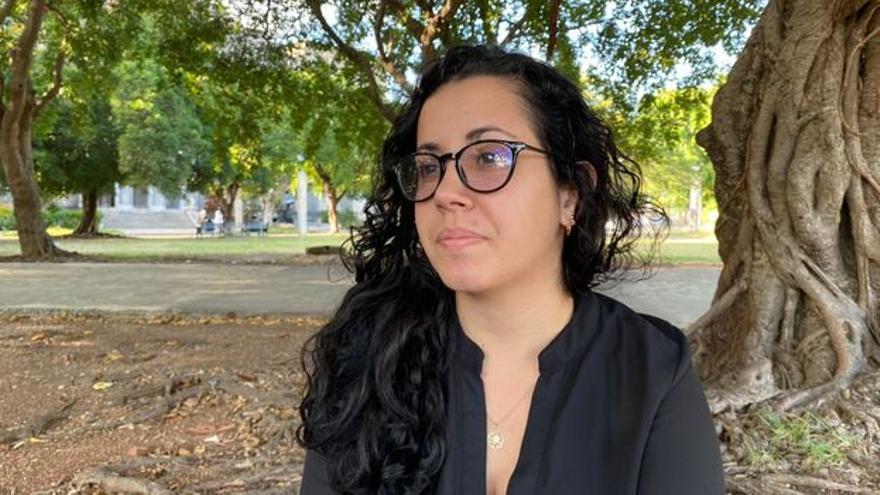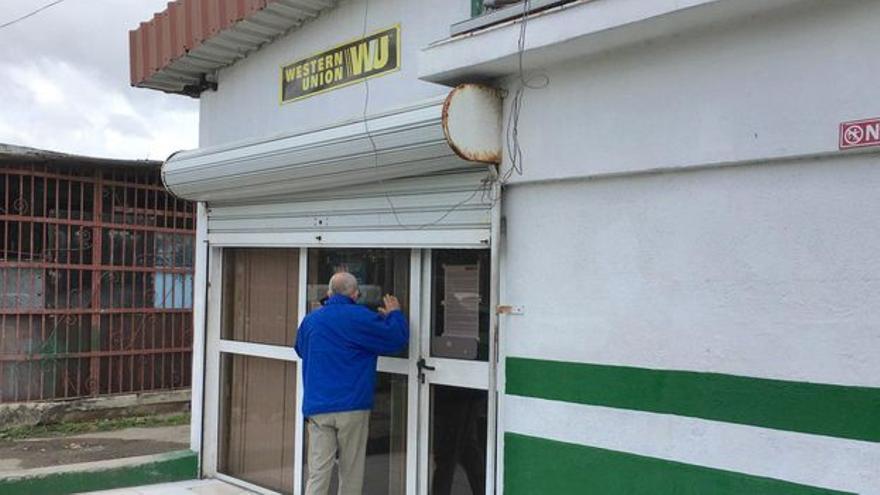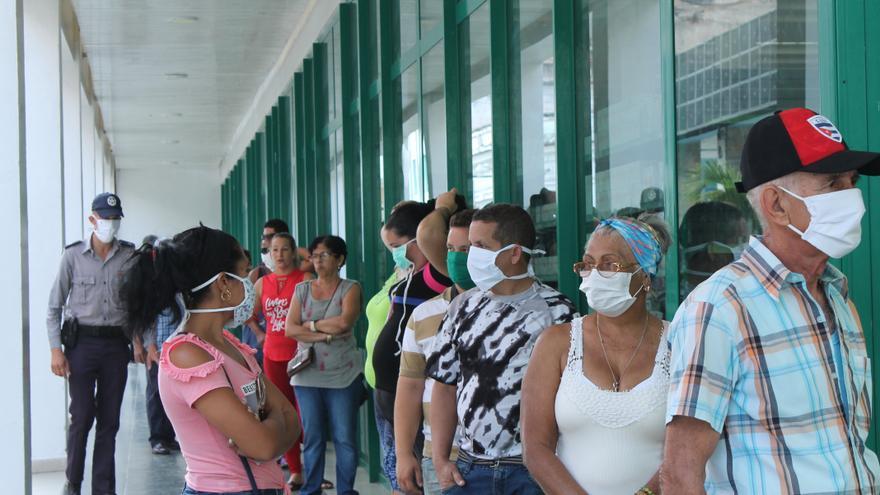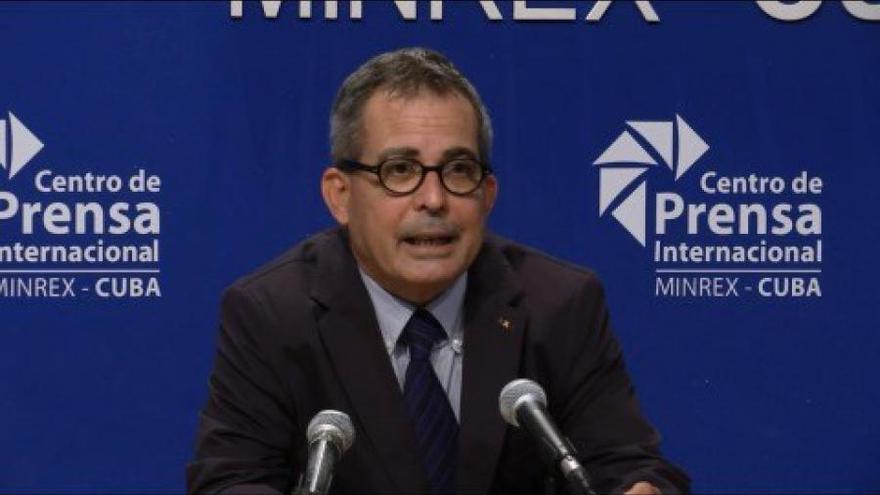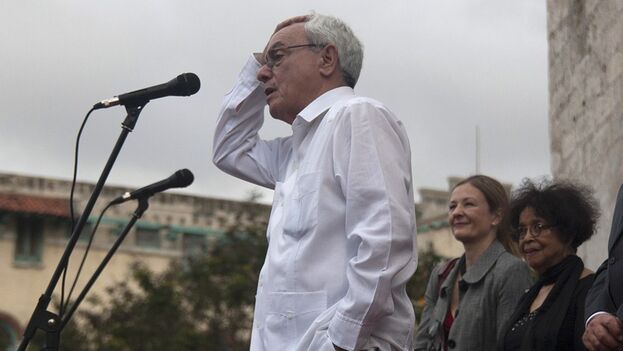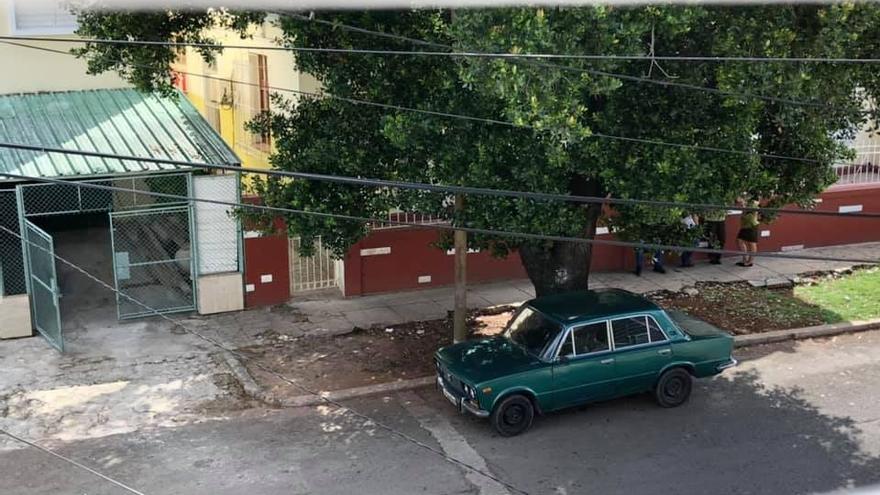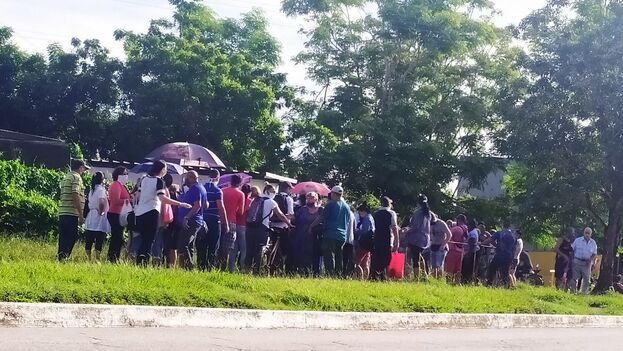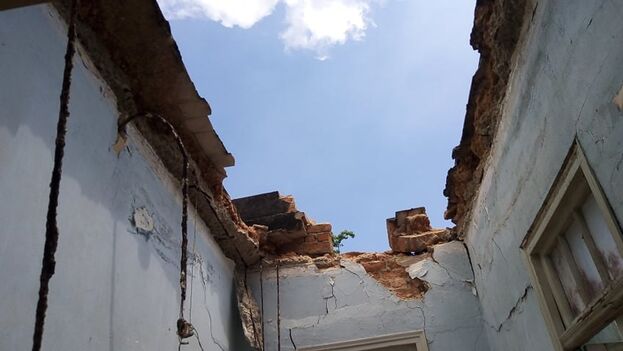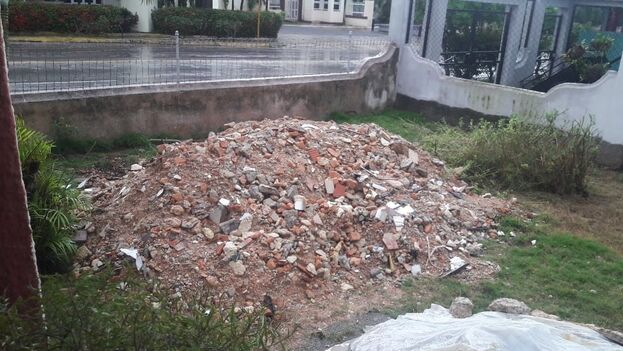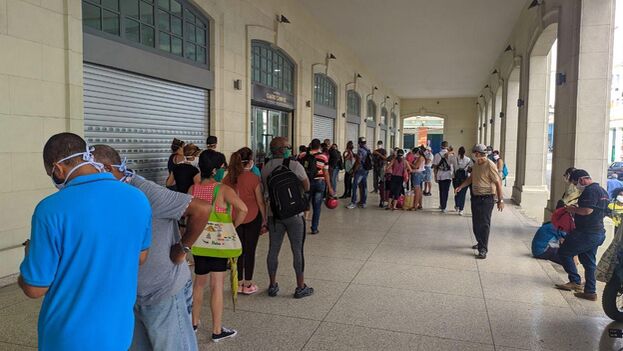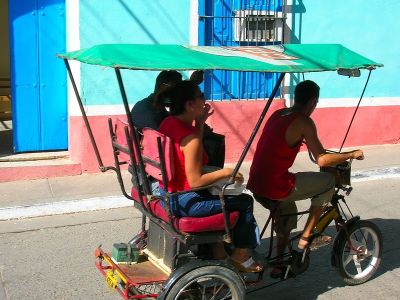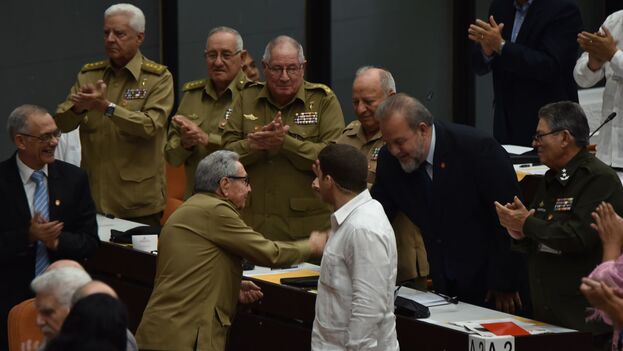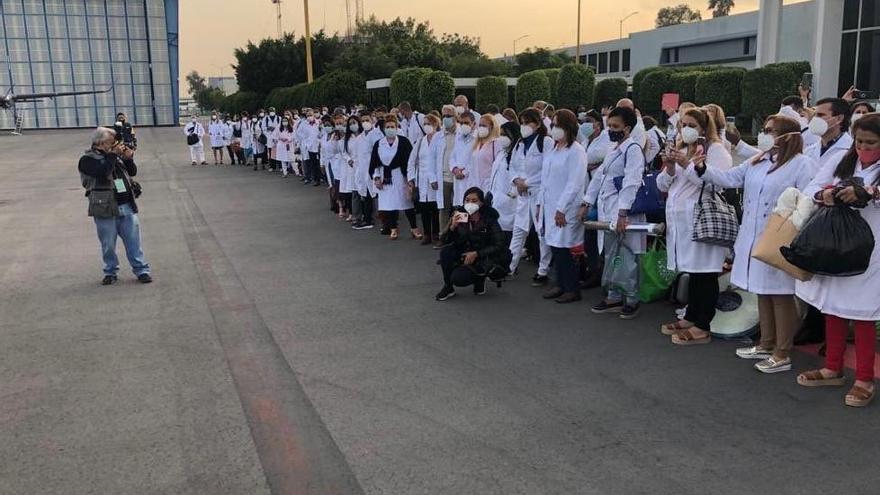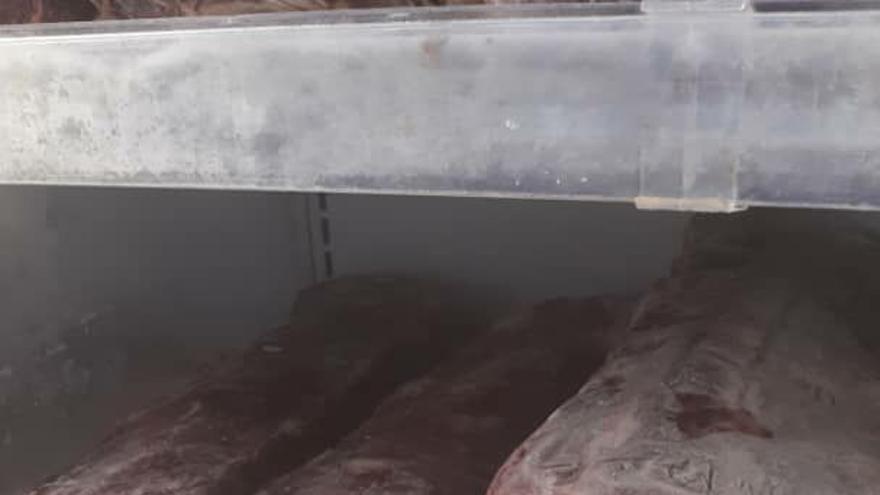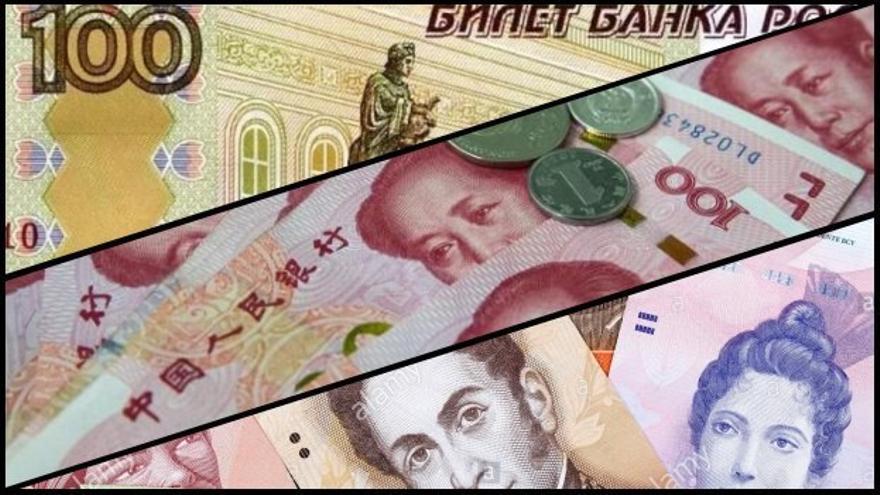The paralisation of transport following the confinement measures and the resulting decrease in tourist arrivals since the start of the year have determined the results of a sector now on the brink of collapse. Especially vulnerable to this situation are the private brokers who rely on loans and charging the public for their services.
Instead, the transport minister was quick to proclaim, at the very beginning of his presentation, that “the reactivation of public transport in La Habana was the greatest challenge, requiring the guidance of the Ministerio de Transporte (Ministry of Transport), the Consejo de Defensa Provincial (Provincial Defense Council) and of bodies with the Ministerio del Interior (Ministry of the Interior)”. What else is to be expected? Even during periods where none of the problems created by COVID-19 existed, the industry has long resented the various difficulties weighing it down that are caused by chronic structural deficiencies, such as weak demand and an inflexible operating framework in the provision of of public and private services.
This raises the question, how are problems within the sector being addressed? For the transport minister, the answer is simple, “by guaranteeing compliance with the measures, by the posting of inspectors at stations and by the establishing of a youth force in collaboration with la Unión de Jóvenes Comunistas (the Union of Young Communists) aimed at identifying problems and sharing them via a WhatsApp group”.
In other words, monitoring and informing on private brokers. A cocktail of increased order, discipline and obedience is the speciality of a ministry seeking to eliminate what it calls “irregularities” in the capital, such as playing music at a high volume or staging protests against the inspectors on behalf of the population. If someone complains about the transport service, they are deemed responsible for an “irregularity”, which could then be classified as a offence. A masterclass in the handling of complaints and demands by the communist government. It is incredible that situations such as the one outlined above can still arise in the 21st century.
The transport minister repeatedly described the problems within the sector, which “require the understanding of the public during this period”, and added that “a systematic reform of the stops is underway with the active involvement of the Defence Council”, another one of the regime’s informants. Images of the long queues of Cubans waiting to use a public transport network running at full capacity all throughout the day have been widely circulated on social media sites during the pandemic, images that are also notable for the complete lack of social distancing.
Given the severity of the situation, confronting statements made by the Ministry of Transport can seem like some kind of a sick joke. One such statement is “the establishment of a reinforced service to the beaches. This has involved the reorganisation of the entire flow of transport based on the fact that the beaches are an area where people tend to congregate”. In particular, the Ministry referred to the “9 a.m. Tuesday-Sunday train to Playas del Este that leaves from the loading bay of the Central Station, La Habana Vieja“.
It highlighted that services were restricted during the pandemic in line with the confinement measures taken by the government. Consequently, the interprovincial lines have been running at 30% of normal as 70% of these lines are connected to the capital. The Ministry also signalled “difficulties with airplanes” when discussing air transport, which explains the focus of the ministry on buses and trains. It confirmed that the ticket sales would be made through the app “Viajando” (Travelling) and las Agencias de Venta (Sales Agencies) while marking the recent “significant investment in the Terminal de Ómnibus Nacionales (National Bus Terminal)” as a success. This investment includes a refurbishment of the terminal with the goal of improving ventilation and with it the passenger experience.
Also emphasised was how “the initial phase will soon put into service the 23 ‘electric trikes'” (small 3-wheeled motorized carts also commonly called auto rickshaws) that were donated to the country; these will operate along routes in Centro Habana and Habana Vieja. Likewise, an app will soon be made available for users of the “gazellas” (metropolitan taxis), allowing them to check prices, routes and even the real time location of the taxis, in addition to other features currently being finalised. The figure of 23 auto rickshaws in a city of more than 2 million inhabitants is somewhat perplexing, to say the least.
Having reached this point, the minster began to explain the integration of transport within the context of the revitalisation plan for the Cuban economy that was recently approved by the Consejo de Minsistros (Council of Ministers).
At its most basic, the measures proposed are designed to “make the most of what we already have”, taking into account that the “financial resources will be limited”. Furthermore, the interventions in transport must “give priority to exports and import substitution, as well as providing the scope for improved management and greater efficiency. This will generate incentives and management strategies that mutually support one another”. All this is accompanied by the potential of “science, digitalisation and other alternatives that prioritise greater efficiency”.
Having finished his presentation, the minister then provided additional detail on the measures.
With regard to freight transport, it was announced the publication of “a series of guidelines establishing the responsibilities of all actors involved in internal port-freight economic activity that would improve control and management systems for GPS-equipped fleets”. It is unbelievable that this technology needs to be improved, or worse, that it does not already exist in the first place.
Secondly, the minister signalled the adoption of additional measures to “restructure the transport network, because there are cases where the means of transport are not in the hands of the state entities that most need them”, which could be interpreted as an increased centralisation of services that were previously offered by private brokers.
Next, an increase in “the more efficient mode of cabotage transport (management, manufacturing and maintenance of small boats)” was announced, a service that the government is constantly trying to secure but is usually hindered by the insular structure of the country.
Fourthly, and with respect to passenger transport, the minister indicated that “there will be a reorganisation of routes in order to adjust schedules in line with demand during peak hours. The use of bicycles, auto rickshaws and electric motorcycles will also be encouraged, all of which are expected to improve traffic flow in the upcoming months”. The consequences of these initiatives that interfere with the autonomy of private enterprise while increasing state control are well known.
The fifth presentation follows its predecessors, with what the minister called “the establishment of an organisational task force to facilitate improvements to the efficiency of the railway system, including the transport of sugar”, as if the problem of the Cuban rail network could be resolved through organisation and nothing else, given the constant delays and abysmal quality of an infrastructure left to decay because of a lack of state investment.
Almost slipping under the radar was the minister’s announcement of a new railway operator “to provide services to the Zona Especial de Desarrollo Mariel (the “Mariel” Special Development Zone). Meanwhile, the transportation of passengers and cargo via an express service will continue to be developed. This is the development that had previously been put on hold, but should soon restart with better organisation”. The minister concluded the section about the railways by indicating that “work will be done to transform the railway maintenance networks, which had seen delays due to the current constraints.”
Finally, and forming part of the additional measures taken within the industry, the minister highlighted the “work being done to fine tune the necessary protocols for the sale of internal combustion engines within the country”. It is expected that they will be available in shops dealing in MLC (moneda libremente convertible, freely convertible currency). In this sense, the minister highlighted the need to “provide incentives that will increase the production of spare parts both in the public and private sector”, without going as far as to indicate what these incentives might be.
In line with the introduction of MLC in all areas of the economy, the minister affirmed that work is being carried out in the “promotion of various enterprises that currently provide services in the public sector so that they can continue to provide the services in MLC. Foreign companies will also receive assistance”.
With regard to the service in state-owned workshops that are privately run, featuring as one of the few references to the private sector, it was remarked that “there will be an evaluation to determine which state-owned workshops would be able to pass into private management (of which La Habana already has experience in this)”. There was little more, if anything at all, on the matter. It was also said that “cooperatives will continue to be actively promoted, and modes of transport will be loaned by state entities to individually selected productive activities”. Once more, precious little detail was provided on what form this would take.
There was also time to dangle a carrot in the direction of one of the nation’s great powers. This carrot consisted of an increase in support from the Ministry of Transport to the Unión de Industrias Militares (The Union of Military Industry) with the aim of “boosting the number of drivers, chauffeurs and crew members who are competent with the latest technologies”.
Finally, the minister heralded the arrival of e-commerce to the transport industry, encouraging private carriers who provide interprovincial services to register with the “Viajando” application, as well as incorporating the sale of airplane tickets to e-commerce platforms.
By way of a summary, the minister asserted that mass transport, both by train and bus, had now been restarted, as had the sale of interprovincial tickets through “Viajando“. Despite being relatively a relatively new platform, approximately 26,000 bus tickets have already been sold via the application. He went on to state that the Cayo, Coco, Cayo Largo del Sur and Villa Clara airports were ready and waiting for when international flights are permitted and begin arriving once more, adding that all of the services comply with the health procedures put in place. This includes the obligatory use of facemasks, the disinfection of transport facilities and capacity limits placed on terminals around the country.
The minister affirmed that “all the freight transportations scheduled by the country have had safety checks performed as part of the process in which begin provide their services once more. This process includes an update of the fuel cards to the latest version”. On that note, it was shown that more than 70% of freight carriers had updated their cards, which can now be used in conjunction with the Transfermóvil application to carry out transactions on the go. The remaining workers in the industry, totalling more than 70,000 (including mechanics and repair technicians), are able to continue working without any issues.
There is no doubt that the reactivation of the transport industry is crucial for the national economy, and there is a lot at stake. Most important are the interests of the state and the private sector. Supported by the WHO, the gradual, phase by phase restarting of services according to the regulations established by Salud Pública (Public Health) follows a path that attempts to limit new outbreaks.
However, the process is by no means free of contradictions. To that end, since regular flight schedules were suspended on March 24, the minister has confirmed that there have been more than 300 “humanitarian flights” chartered for various reasons. The flights have carried more than 30,000 Cubans and foreign citizens abroad, while more than 7,000 have entered the country.
The minister indicated that local trains have their services up and running again, as do a number of interprovincial lines linking together more than one province. On the subject of the Chinese trains, the minister had to explain that these were still not in service “since that all of the national routes start from La Habana, which is still in phase 1. Additionally, the establishing of interprovincial lines that do not include La Habana is complicated, especially since all of the trains are based in the capital”. It is precisely the capital where these dormant Chinese trains can be found.
Translated by: Andy Barton
_______________
COLLABORATE WITH OUR WORK: The 14ymedio team is committed to practicing serious journalism that reflects Cuba’s reality in all its depth. Thank you for joining us on this long journey. We invite you to continue supporting us by becoming a member of 14ymedio now. Together we can continue transforming journalism in Cuba.
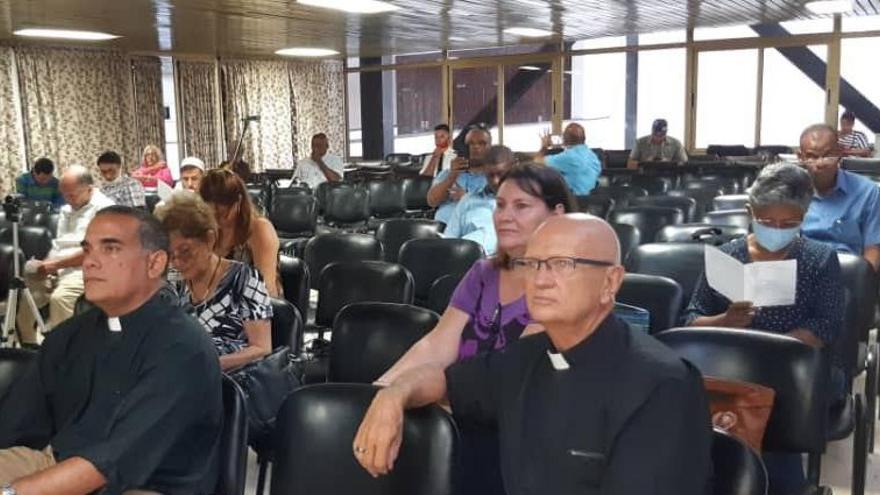
![]() 14ymedio, Manuel Calvo, Santiago de Cuba | 30 July 2020 — In response to accusations presented on July 13 at the United Nations that the Government of Cuba violates religious freedoms, a colloquium on religious freedom was held in Santiago de Cuba on Monday, with the Council of Churches, which includes the denominations recognized by the authorities of the Island.
14ymedio, Manuel Calvo, Santiago de Cuba | 30 July 2020 — In response to accusations presented on July 13 at the United Nations that the Government of Cuba violates religious freedoms, a colloquium on religious freedom was held in Santiago de Cuba on Monday, with the Council of Churches, which includes the denominations recognized by the authorities of the Island.

